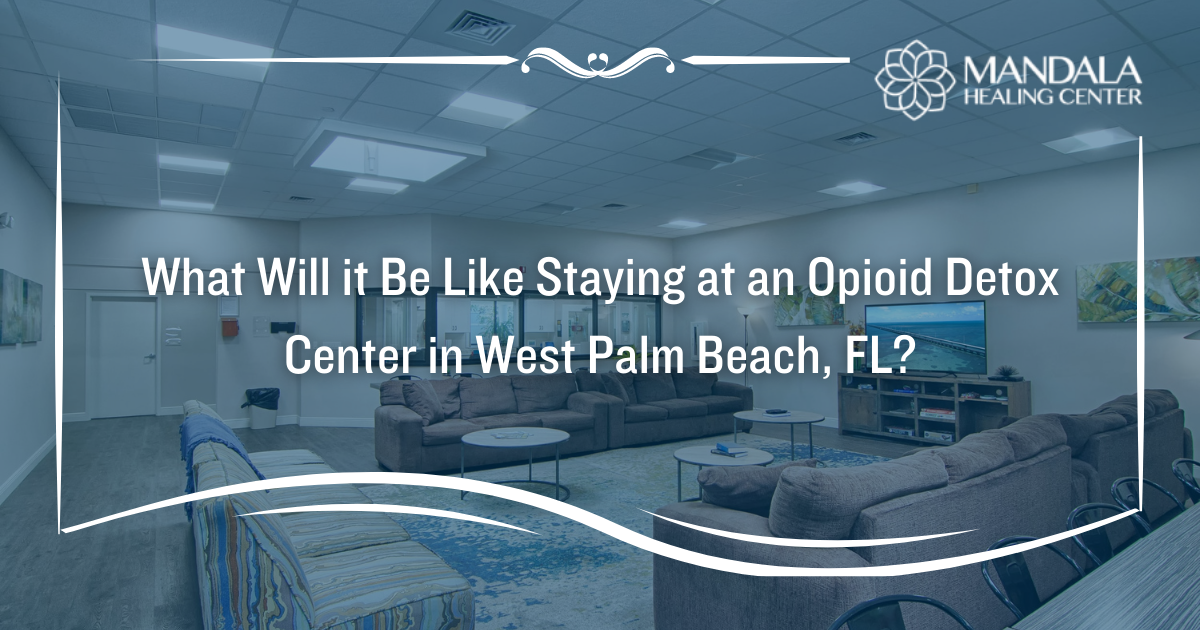According to the CDC, 75% of the 92,000 drug overdose deaths in 2020 involved an opioid.[1] Seeking treatment for opioid abuse and addiction can help prevent an overdose, but getting sober isn’t always easy.
When someone suffers from opioid addiction, their opioid receptors adapt to the continuous presence of opioids in the system. This causes the person’s body to rely on opioids to function properly. If this person attempted to cut back on or quit using opioids, they would experience opioid withdrawal syndrome.
The symptoms of opioid withdrawal can be painful and extremely uncomfortable, often causing people to want to continue getting high rather than going through with detoxification when they attempt to quit cold turkey. Rather than trying to detox alone, an opioid detox center in West Palm Beach, FL can help patients stay safe and comfortable during the withdrawal process.

What are the Symptoms of Opioid Withdrawal?
The symptoms an individual will experience depends on a variety of factors, including how many opioids they used and how frequently they abused them. Additionally, many factors play a role in how long opioid withdrawal will last.
Because of this, everyone experiences opioid withdrawal differently. However, there is a general timeline that opioid withdrawal follows. Early symptoms of opioid withdrawal typically begin 24 hours after a person’s last dose.
The early symptoms of opioid withdrawal include:
- Muscle aches and pain
- Restlessness or inability to sleep
- Anxiety
- Teary eyes
- Runny nose
- Excessive sweating
- Yawning very often
After about a day or so, individuals will begin experiencing the later and more severe symptoms of opioid withdrawal. This is typically when people suffer from a relapse, as the symptoms become too intense to cope with without professional treatment.
The later symptoms of opioid withdrawal include:
- Diarrhea
- Abdominal cramps
- Goosebumps
- Nausea
- Vomiting
- Dilated pupils
- Blurred vision
- Rapid heart rate
- High blood pressure
While the symptoms of opioid withdrawal are painful and unpleasant, they typically begin to lessen after 72 hours and completely dissipate after a week or so.
How is Opioid Withdrawal Treated?
Opioid withdrawal must be treated within a medical detox program. Most of the time, individuals will be treated through the tapering method. This means they will be given opioid medications that are approved by the FDA for opioid withdrawal treatment. For example, medications like buprenorphine and naloxone soothe the severe symptoms of withdrawal and reduce cravings, thereby preventing individuals from feeling the need to relapse.
Drug detox consists of:
Initial Assessment
When someone steps foot into a medical detox program, they will undergo an initial assessment and intake process. This process allows medical staff to get an understanding of their goals and needs for opioid detox and recovery from addiction.
During the initial assessment, the staff members will ask a patient about their medical history, mental health history, family history, and any other questions that will help them grasp the person’s current situation regarding drug abuse. This allows them to create an individualized treatment plan for the patient’s time at the detox facility.
Symptom Management
Opioid withdrawal can be extremely uncomfortable and cravings can cause people to relapse, but medications are used during detox to soothe the symptoms and cravings associated with opioid withdrawal.
A tapering medication like methadone may be used to reduce the symptoms of opioid withdrawal. Methadone is an opioid receptor agonist, meaning it attaches to opioid receptors in the brain and blocks withdrawal symptoms and cravings.[2]
One of the most widely used medications during opioid detox in West Palm Beach is buprenorphine. Buprenorphine is a partial opioid agonist that blocks the effects of other opioid drugs while also activating opioid receptors to reduce symptoms of withdrawal.
Another medication used is known as lofexidine. This medication is an adrenergic receptor agonist, meaning it attaches to and activates adrenergic receptors in the brain to alleviate symptoms of withdrawal.[2]
Lastly, clonidine may be used to alleviate some of the symptoms of opioid withdrawal. This medication can help with:[3]
- anxiety
- cramping
- muscle aches
- restlessness
- sweating
- tears
- runny nose
Stabilization
When someone is detoxing off of opioids, their body is going through some significant changes. As the opioids are removed from their body, the opioid receptors in their brain remain overactive because they don’t have opioids to calm them down. This overactivity in the brain causes symptoms of withdrawal. Some individuals may experience high blood pressure and an increased heart rate, which can become dangerous without medical intervention.
During detox, nurses and medical staff monitor each patient’s vitals to prevent severe side effects and help nurses catch a medical emergency before it becomes one. Vital signs that are monitored include body temperature, pulse rate, respiration rate, and blood pressure.
Get Connected With an Opioid Detox Center in West Palm Beach, Florida Today
If you or a loved one suffer from opioid addiction, you may dread having withdrawal symptoms if you stop using or run out of your opioid drugs. Trying to detox alone can be extremely dangerous, as the symptoms of withdrawal can lead to medical emergencies such as high blood pressure.
Instead of suffering alone, consider attending an opioid detox center in West Palm Beach, Florida like Mandala Healing Center. Our board-certified physicians and world-class clinical team are ready to help patients struggling with a wide variety of substances, including opiates, methamphetamine, benzodiazepine, and illicit substances.
If you or a loved one are struggling with opioid addiction, give us a call today. Our team of qualified admissions coordinators is available now to help you begin your recovery.
References:
- https://www.cdc.gov/drugoverdose/deaths/index.html
- https://nida.nih.gov/research-topics/trends-statistics/infographics/medications-opioid-overdose-withdrawal-addiction
- https://journalofethics.ama-assn.org/article/treatment-dependence-opiate-medications/2004-01












